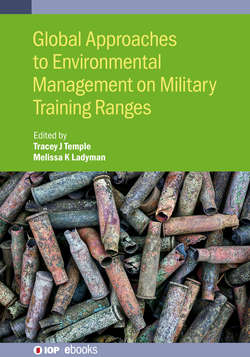Читать книгу Global Approaches to Environmental Management on Military Training Ranges - Tracey Temple - Страница 37
На сайте Литреса книга снята с продажи.
Fundamental sampling error
ОглавлениеError attributable to compositional heterogeneity, the non-uniform composition of each particle in the DU or within the sample leads to a fundamental sampling error (FSE). FSE is a precision error that is controlled through the collection of sufficient mass to represent all the particles of varying composition. There are various formulas to estimate FSE, some quite complicated and others quite simple if certain assumptions can be made. The basic relationship of FSE to particle size, sample mass and compositional heterogeneity is as follows:
FSE2∝Cd3ms
where:
FSE = Fundamental sampling error
C = Sampling constant (g cm−3)
d = diameter of largest particles (cm)
ms = mass of sample (g).
This equation is used to determine the mass necessary to control the FSE. The sampling constant (C) is unique for each type of material and needs to be determined. However, research done through the US Strategic Environmental Research and Development Program (SERDP) has determined that the mass necessary to control the FSE at an adequate level to make the appropriate and defensible inferences is approximately 2 kg.
